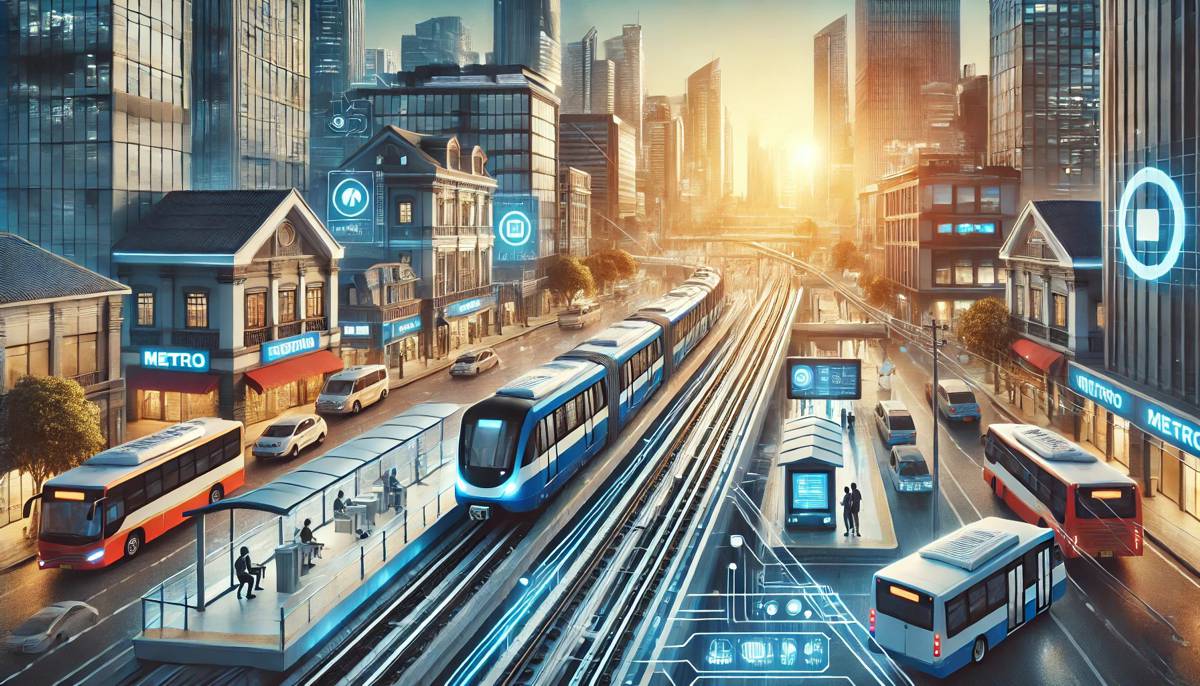Transforming Philippines Public Transport with Strategic PPP Support from ADB
The Asian Development Bank (ADB) has taken on a significant role as the transaction advisor to the Department of Transportation (DOTr) in the Philippines. This partnership aims to revolutionise the public transportation system across the nation.
Through its Office of Markets Development and Public-Private Partnerships, ADB will lend its expertise in project preparation, contract structuring, and the procurement of adept private partners for three key projects.
Upgrading Metro Manila’s MRT3
One of the flagship projects under this collaboration is the rehabilitation and modernisation of Metro Rail Transit Line 3 (MRT3), a vital 17-kilometre rail line that traverses Epifanio de los Santos Avenue (EDSA). EDSA, a major artery in Metro Manila, serves millions of daily commuters across cities such as Pasay, Makati, Mandaluyong, and Quezon City through 13 strategically placed stations.
Currently managed by the DOTr and maintained by Sumitomo-Mitsubishi Heavy Industries Ltd., the MRT3 faces numerous operational challenges. The contract with Sumitomo is set to expire in 2025, marking an opportune moment for a transformative shift. ADB’s advisory role will be crucial in engaging a proficient passenger rail operator who can overhaul, operate, and maintain the line, ensuring a seamless and efficient transit experience for Metro Manila’s residents.
Davao City’s Modern Bus System
In Davao City, a second major initiative is underway with the development of a state-of-the-art bus transport system. Backed by a substantial $1 billion loan from ADB, this project aims to deploy both electric and diesel buses across 29 routes, efficiently connecting the city through a four-tier network. This modern system will be complemented by the necessary infrastructure, including bus terminals, dedicated stops, and exclusive bus lanes.
ADB’s involvement will extend to securing a capable private partner responsible for implementing an Intelligent Transport System (ITS) and an Automated Fare Collection System (AFCS). These technologies are set to streamline operations and enhance passenger convenience, making public transport in Davao City more reliable and user-friendly.
Nationwide Automated Fare Collection System
The third project focuses on the implementation of a ground-breaking nationwide Automated Fare Collection System (AFCS). This initiative aims to establish a cashless, open, multimodal, and interoperable fare collection system, initially targeting government-owned rail lines before expanding to other public transport systems across the country.
This ambitious endeavour seeks to harness digital solutions to bolster sustainability and transparency within the public transport sector. ADB’s role will be pivotal in developing this system and selecting a suitable private partner to ensure its successful rollout.
A Vision for Sustainable Growth
“Efficient public transport systems are key to ensuring sustainable growth as well as mitigating the impact of climate change,” remarked Cleo Kawawaki, Head of ADB’s Office of Markets Development and Public-Private Partnerships. “We are honoured to support DOTr in finding the right private partners for these projects, which will bring greater efficiency, innovation, and better consumer experiences for public transport users in the Philippines.”
ADB’s Commitment to Sustainable Development
Since its establishment in 1966, ADB has been steadfast in its mission to promote a prosperous, inclusive, resilient, and sustainable Asia and the Pacific.
With 68 member countries, including 49 from the region, ADB continues to strive towards eradicating extreme poverty through strategic partnerships and innovative solutions.
Additional Insights and Information
The ADB’s involvement in these transformative projects highlights the importance of public-private partnerships (PPPs) in advancing infrastructure development.
PPPs are instrumental in pooling resources, expertise, and risks, ensuring that large-scale projects are executed efficiently and effectively.
Key Benefits of PPPs in Public Transport:
- Enhanced Efficiency: Private partners often bring in advanced technologies and management practices, improving operational efficiency.
- Risk Sharing: By involving private entities, the government can share the financial and operational risks associated with large infrastructure projects.
- Innovation: Private sector participation encourages innovation, leading to the development of cutting-edge solutions for public transport challenges.
- Improved Service Delivery: With a focus on customer satisfaction, private operators are likely to provide higher quality services, enhancing the overall user experience.
Looking Forward
As the Philippines embarks on this journey to modernise its public transportation, the collaborative efforts between ADB and DOTr are poised to create a lasting impact. These projects are not just about improving infrastructure; they represent a commitment to sustainable urban development, better quality of life, and economic growth.
With the support of experienced private partners, the Philippine public transport system is set to undergo a significant transformation, making daily commutes smoother, safer, and more efficient for millions of Filipinos.





























